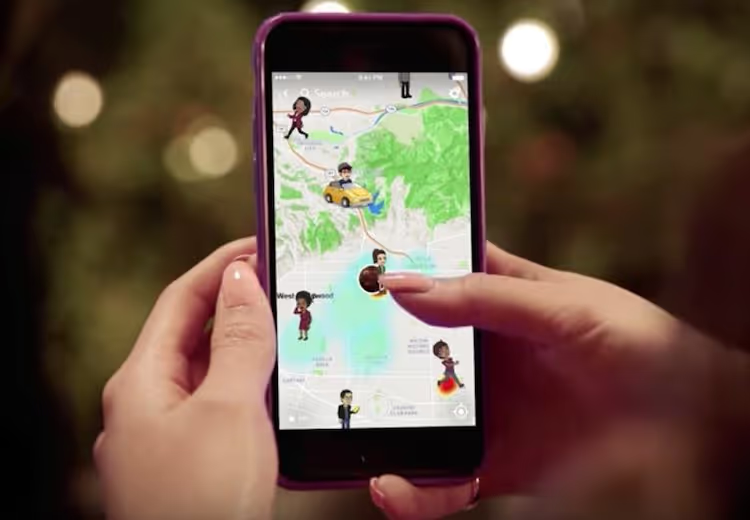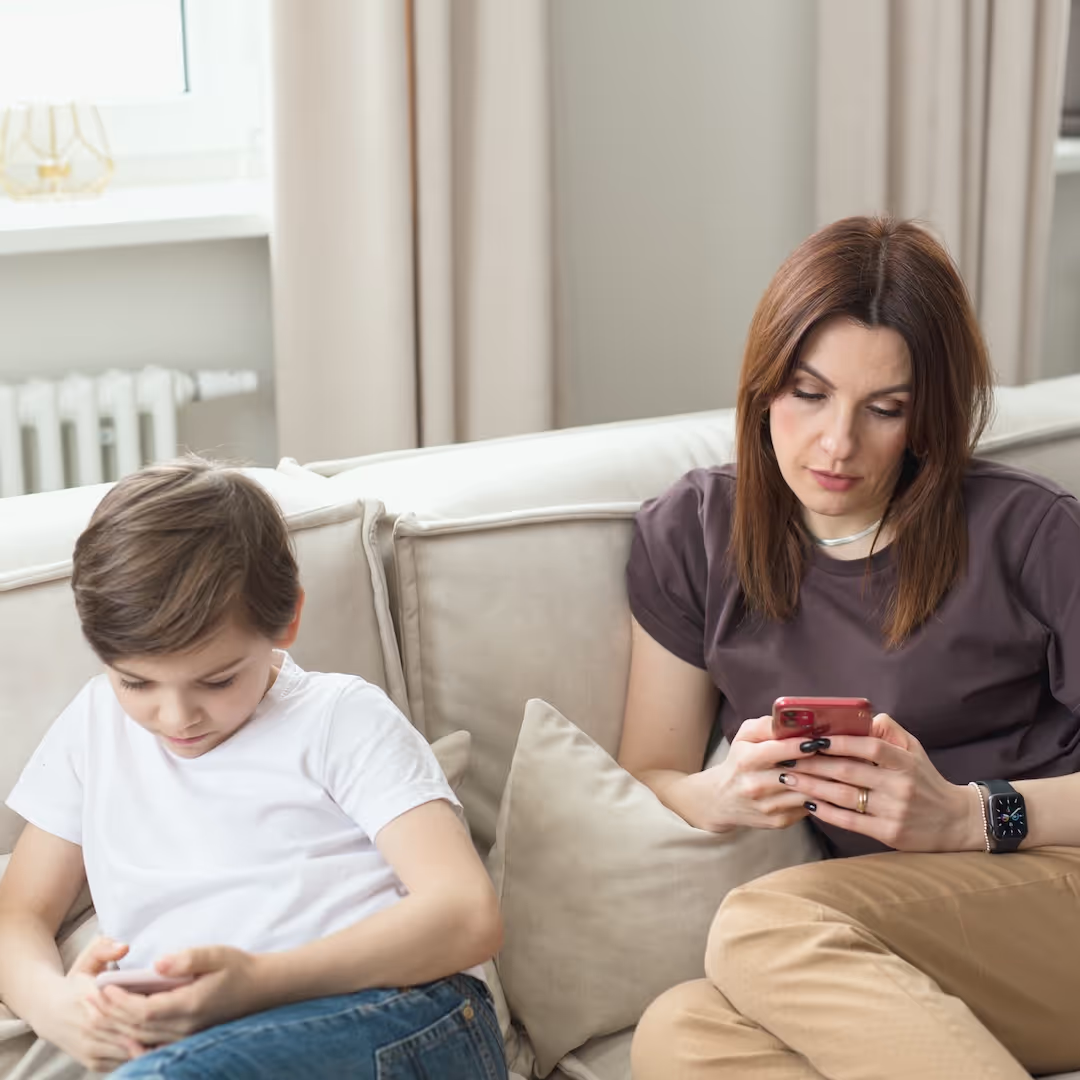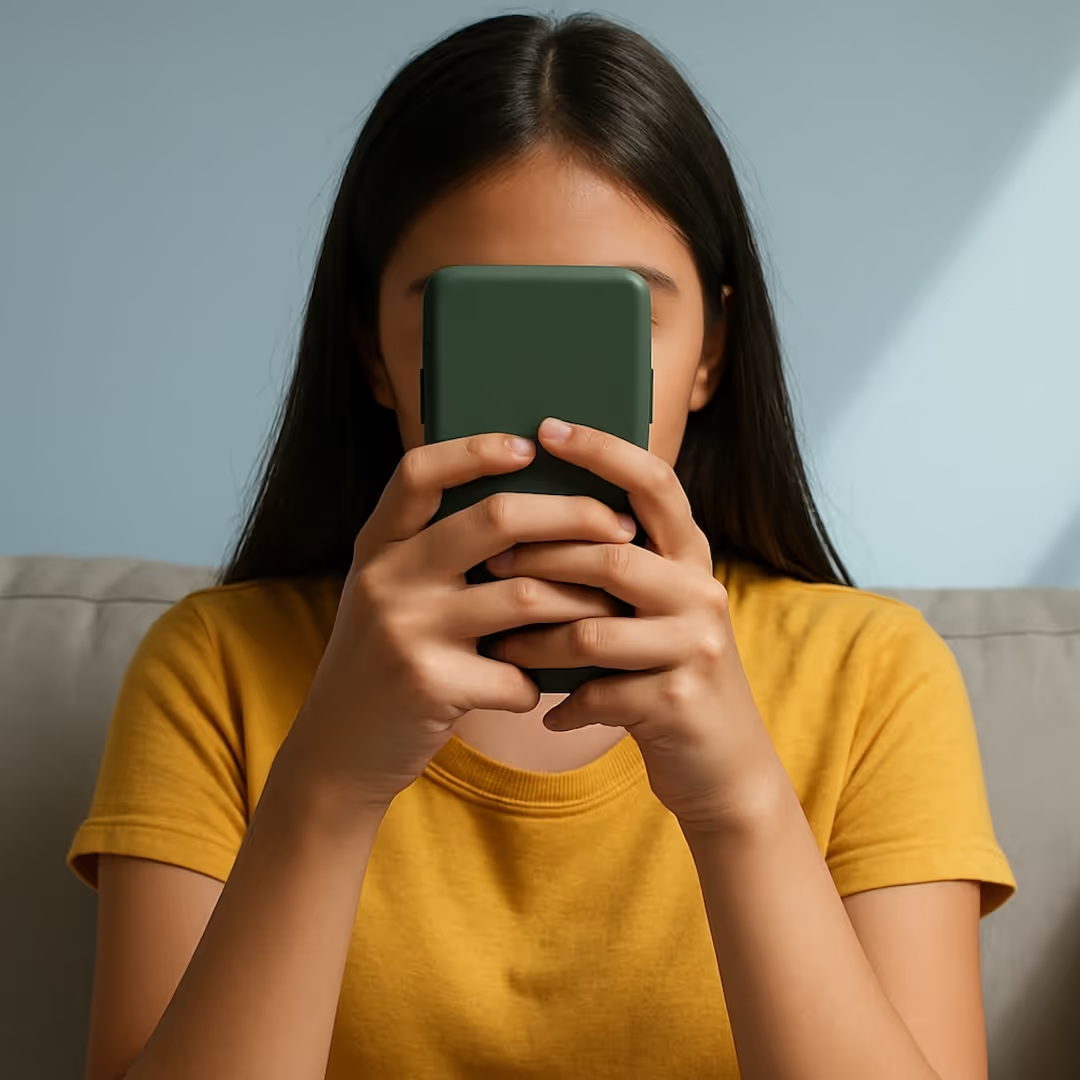


Last year Snapchat introduced Snap Map, a cartoon-looking map with Bitmojis of users positioned at their real-life locations. At first, I thought this would not catch on because kids would know that sharing their location widely is not safe. I was wrong. The Snap Map function is used by most teens who use the app.
It goes one step further than just showing where the kid is, it also can virtually show what they are actually doing. A Bitmoji is selected by Snapchat to represent what the user is doing. If they are at a concert or listening to music, the Bitmoji might have headphones on. If they are at the gym or exercising, their Bitmoji might have exercise clothes and sneakers. If they are asleep, it shows them with little zzz’s or in a bed. There’s also a function called Map Explore that allows you to scroll through the map to see where your friends are headed. These updates are generated by Snapchat users moving around rather than typing in their locations. You can actually watch as your friend moves from one place to another.
The positive way to look at this is that some kids use the map to find their friends to meet up with them in real life, and encouraging real-life interaction is often a good thing.
But, in no uncertain terms, I want to say that I am concerned that so many of our kids and teens are pinpointing people’s exact location, including home addresses and street names. This raises a lot of red flags. As we know, the word “friend” can mean anything from a true bestie to a complete stranger.
Keeping our kids safe online is no easy task and Snap Map makes it even harder. It not only compromises the privacy and security of the kids using it, but it can also exacerbate feelings of being left out. Imagine you are at home using Snapchat and you see a group of your friends at someone else’s house on Snap Map. “Why wasn’t I invited,” you think. Whether it was intentional or not, the feeling of being left out is an immediate blow.
When you first activate Snap Map, you are asked if you want to share your location with all of your friends, some of your friends or remain private in Ghost Mode. If they have already started using Snap Map, they can change their privacy setting to Ghost Mode by going to the photo taking mode and pinching their screen to get to Snap Map. Once there, they click on the settings wheel and select Ghost Mode to turn off location sharing. They will be able to see where other people are but no one will see them.
I firmly believe that Snap Map has more downsides than upsides. The challenge is that many youths do use it. Therefore, when talking with your kids and teens about this, I suggest entering the conversation from a place of curiosity rather than a place of heavy-handedness. This will increase the chance that they come to understand that the downsides outweigh any upsides. It might be that you create a rule specifying Ghost Mode even if they disagree with it. They might not be happy at the moment, but chances are someday they will be thankful for the decision.
We would love for you to share this TTT any way that works for you, whether that’s on social media or via a newsletter. If you want to send it out in your newsletter we just ask that you credit us and link to our website, and let us know at lisa@screenagersmovie.com.
HOST A SCREENING to help spark change.
FIND EVENT LISTINGS
Do you organize professional development in schools? We now have a 6-hour, 3-part training module. Request more information here Professional Development.
Stay in touch with the Screenagers community on Facebook, Twitter and leave comments below.
Learn more about showing our movies in your school or community!
Join Screenagers filmmaker Delaney Ruston MD for our latest Podcast

Learn more about our Screen-Free Sleep campaign at the website!
Our movie made for parents and educators of younger kids
Learn more about showing our movies in your school or community!
Learn more about showing our movies in your school or community!
Join Screenagers filmmaker Delaney Ruston MD for our latest Podcast

Learn more about our Screen-Free Sleep campaign at the website!
Our movie made for parents and educators of younger kids
Join Screenagers filmmaker Delaney Ruston MD for our latest Podcast
As we’re about to celebrate 10 years of Screenagers, we want to hear what’s been most helpful and what you’d like to see next.
Please click here to share your thoughts with us in our community survey. It only takes 5–10 minutes, and everyone who completes it will be entered to win one of five $50 Amazon vouchers.
Last year Snapchat introduced Snap Map, a cartoon-looking map with Bitmojis of users positioned at their real-life locations. At first, I thought this would not catch on because kids would know that sharing their location widely is not safe. I was wrong. The Snap Map function is used by most teens who use the app.
It goes one step further than just showing where the kid is, it also can virtually show what they are actually doing. A Bitmoji is selected by Snapchat to represent what the user is doing. If they are at a concert or listening to music, the Bitmoji might have headphones on. If they are at the gym or exercising, their Bitmoji might have exercise clothes and sneakers. If they are asleep, it shows them with little zzz’s or in a bed. There’s also a function called Map Explore that allows you to scroll through the map to see where your friends are headed. These updates are generated by Snapchat users moving around rather than typing in their locations. You can actually watch as your friend moves from one place to another.
The positive way to look at this is that some kids use the map to find their friends to meet up with them in real life, and encouraging real-life interaction is often a good thing.
But, in no uncertain terms, I want to say that I am concerned that so many of our kids and teens are pinpointing people’s exact location, including home addresses and street names. This raises a lot of red flags. As we know, the word “friend” can mean anything from a true bestie to a complete stranger.
Keeping our kids safe online is no easy task and Snap Map makes it even harder. It not only compromises the privacy and security of the kids using it, but it can also exacerbate feelings of being left out. Imagine you are at home using Snapchat and you see a group of your friends at someone else’s house on Snap Map. “Why wasn’t I invited,” you think. Whether it was intentional or not, the feeling of being left out is an immediate blow.
When you first activate Snap Map, you are asked if you want to share your location with all of your friends, some of your friends or remain private in Ghost Mode. If they have already started using Snap Map, they can change their privacy setting to Ghost Mode by going to the photo taking mode and pinching their screen to get to Snap Map. Once there, they click on the settings wheel and select Ghost Mode to turn off location sharing. They will be able to see where other people are but no one will see them.
I firmly believe that Snap Map has more downsides than upsides. The challenge is that many youths do use it. Therefore, when talking with your kids and teens about this, I suggest entering the conversation from a place of curiosity rather than a place of heavy-handedness. This will increase the chance that they come to understand that the downsides outweigh any upsides. It might be that you create a rule specifying Ghost Mode even if they disagree with it. They might not be happy at the moment, but chances are someday they will be thankful for the decision.
We would love for you to share this TTT any way that works for you, whether that’s on social media or via a newsletter. If you want to send it out in your newsletter we just ask that you credit us and link to our website, and let us know at lisa@screenagersmovie.com.
HOST A SCREENING to help spark change.
FIND EVENT LISTINGS
Do you organize professional development in schools? We now have a 6-hour, 3-part training module. Request more information here Professional Development.
Stay in touch with the Screenagers community on Facebook, Twitter and leave comments below.
Sign up here to receive the weekly Tech Talk Tuesdays newsletter from Screenagers filmmaker Delaney Ruston MD.
We respect your privacy.
Last year Snapchat introduced Snap Map, a cartoon-looking map with Bitmojis of users positioned at their real-life locations. At first, I thought this would not catch on because kids would know that sharing their location widely is not safe. I was wrong. The Snap Map function is used by most teens who use the app.
It goes one step further than just showing where the kid is, it also can virtually show what they are actually doing. A Bitmoji is selected by Snapchat to represent what the user is doing. If they are at a concert or listening to music, the Bitmoji might have headphones on. If they are at the gym or exercising, their Bitmoji might have exercise clothes and sneakers. If they are asleep, it shows them with little zzz’s or in a bed. There’s also a function called Map Explore that allows you to scroll through the map to see where your friends are headed. These updates are generated by Snapchat users moving around rather than typing in their locations. You can actually watch as your friend moves from one place to another.
The positive way to look at this is that some kids use the map to find their friends to meet up with them in real life, and encouraging real-life interaction is often a good thing.
But, in no uncertain terms, I want to say that I am concerned that so many of our kids and teens are pinpointing people’s exact location, including home addresses and street names. This raises a lot of red flags. As we know, the word “friend” can mean anything from a true bestie to a complete stranger.
Keeping our kids safe online is no easy task and Snap Map makes it even harder. It not only compromises the privacy and security of the kids using it, but it can also exacerbate feelings of being left out. Imagine you are at home using Snapchat and you see a group of your friends at someone else’s house on Snap Map. “Why wasn’t I invited,” you think. Whether it was intentional or not, the feeling of being left out is an immediate blow.
When you first activate Snap Map, you are asked if you want to share your location with all of your friends, some of your friends or remain private in Ghost Mode. If they have already started using Snap Map, they can change their privacy setting to Ghost Mode by going to the photo taking mode and pinching their screen to get to Snap Map. Once there, they click on the settings wheel and select Ghost Mode to turn off location sharing. They will be able to see where other people are but no one will see them.
I firmly believe that Snap Map has more downsides than upsides. The challenge is that many youths do use it. Therefore, when talking with your kids and teens about this, I suggest entering the conversation from a place of curiosity rather than a place of heavy-handedness. This will increase the chance that they come to understand that the downsides outweigh any upsides. It might be that you create a rule specifying Ghost Mode even if they disagree with it. They might not be happy at the moment, but chances are someday they will be thankful for the decision.
We would love for you to share this TTT any way that works for you, whether that’s on social media or via a newsletter. If you want to send it out in your newsletter we just ask that you credit us and link to our website, and let us know at lisa@screenagersmovie.com.
HOST A SCREENING to help spark change.
FIND EVENT LISTINGS
Do you organize professional development in schools? We now have a 6-hour, 3-part training module. Request more information here Professional Development.
Stay in touch with the Screenagers community on Facebook, Twitter and leave comments below.

It feels like we’re finally hitting a tipping point. The harms from social media in young people’s lives have been building for far too long, and bold solutions can’t wait any longer. That’s why what just happened in Australia is extremely exciting. Their new nationwide move marks one of the biggest attempts yet to protect kids online. And as we released a new podcast episode yesterday featuring a mother who lost her 14-year-old son after a tragic connection made through social media, I couldn’t help but think: this is exactly the kind of real-world action families have been desperate for. In today’s blog, I share five key things to understand about what Australia is doing because it’s big, it’s controversial, and it might just spark global change.
READ MORE >
I hear from so many parents who feel conflicted about their own phone habits when it comes to modeling healthy use for their kids. They’ll say, “I tell my kids to get off their screens, but then I’m on mine all the time.” Today I introduce two moms who are taking on my One Small Change Challenge and share how you can try it too.
READ MORE >
This week’s blog explores how influencers and social media promoting so-called “Healthy” ideals — from food rules to fitness fads — can quietly lead young people toward disordered eating. Featuring insights from Dr. Jennifer Gaudiani, a leading expert on eating disorders, we unpack how to spot harmful messages and start honest conversations with kids about wellness, body image, and what “healthy” really means.
READ MORE >for more like this, DR. DELANEY RUSTON'S NEW BOOK, PARENTING IN THE SCREEN AGE, IS THE DEFINITIVE GUIDE FOR TODAY’S PARENTS. WITH INSIGHTS ON SCREEN TIME FROM RESEARCHERS, INPUT FROM KIDS & TEENS, THIS BOOK IS PACKED WITH SOLUTIONS FOR HOW TO START AND SUSTAIN PRODUCTIVE FAMILY TALKS ABOUT TECHNOLOGY AND IT’S IMPACT ON OUR MENTAL WELLBEING.
